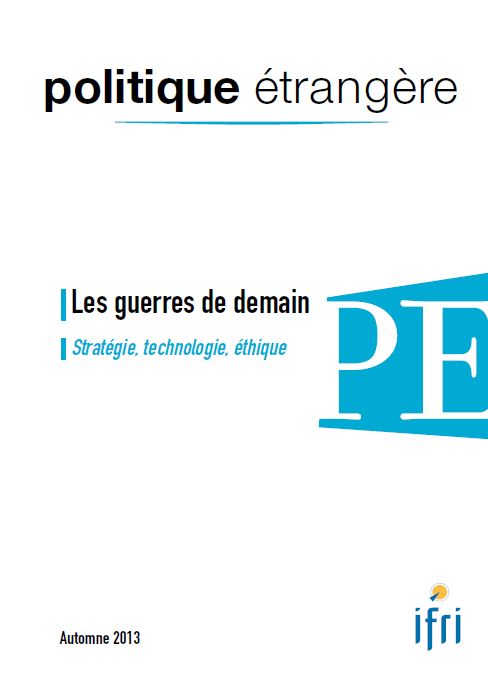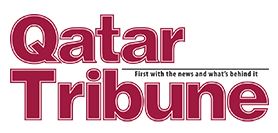QF scales up mission to expand Qatar’s solar energy vision
Governments across the globe are increasingly focusing on the benefits of sustainable energy and Qatar is no different. As part of its national vision, the country is working to create harmony between environmental protection and economic growth.
The Geopolitics of Seawater Desalination
A rapidly-expanding market
Qatar and the US-China Rivalry: The Dilemmas of a Gulf Monarchy
Like its neighbors in the Arabian Peninsula, Qatar finds itself increasingly confronted with a difficult dilemma: while its economy is looking to the East, more specifically towards China, the security and stability of the country still depend on the United States.
Emirates Airline, Etihad Airways and Qatar Airways: Global Airline Companies Promoting the International Position and Reputation of Dubai, Abu Dhabi and Qatar
Airports in the Gulf emirates are major transit hubs in global airline networks today. Apart from their “advantageous” geographical location, their development results primarily from the ambitions of political actors seeking to maintain their power. This has led especially to the creation of the “Gulf companies”, namely Emirates Airline (Dubai), Etihad Airways (Abu Dhabi) and Qatar Airways (Doha). However, the three emirates are not following identical strategies. Within the unstable context of the Middle East, it is important to look at the development dynamics of these companies which symbolize the global reach of small but powerful political entities on the international stage.
The Next Wave of Global LNG Investment Is Coming
With an annual growth of 10% in 2017 to 290 million tons (Mt) and 8.3% in the first half of 2018, Liquified Natural Gas (LNG) demand is rising faster than expected. Accounting for 44% of global demand growth in 2017, China is the main driver of the growth as the government has made natural gas a key policy choice to reduce air pollution and restructure its high-carbon energy mix.
A Year after the Start of the Saudi-Emirati Blockade against Qatar. What Are the Consequences for West Africa?
On June 5th 2017, Saudi Arabia, the United Arab Emirates, Egypt and Bahrain broke off diplomatic relations with Qatar and agreed to isolate the Emirate via an air and land blockade.

Transitions from War to Peace
How do we get out of wars? One hundred years after 1918, Politique étrangère’s special report takes up this question from different perspectives in relation to the conflicts in which Western armies, willingly or otherwise, are embroiled.

The Arctic: a Strategic Exploration
Two strategic regions are at the focus of this back-to-school issue of Politique étrangère.
Diplomatic Relations between Qatar and Sub-Saharan Africa. An Evolving Affair
In the space of 20 years, under the leadership of the former Emir, Hamad bin Khalifa Al Thani, in power between 1995 and 2013, Qatar became a country which matters due to its status, obtained in 2006, as the leading world producer of liquefied natural gas (LNG).
Labor Migration in the State of Qatar: Policy Making and Governance
The discovery of petroleum wealth in the middle of the last century completely reconfigured the political economy of Qatar. Small local population size and low levels of labor force participation pushed Qatar to seek alternate sources of labor to meet burgeoning labor demands.
The Geopolitics of Seawater Desalination
A rapidly-expanding market
Qatar and the US-China Rivalry: The Dilemmas of a Gulf Monarchy
Like its neighbors in the Arabian Peninsula, Qatar finds itself increasingly confronted with a difficult dilemma: while its economy is looking to the East, more specifically towards China, the security and stability of the country still depend on the United States.
Emirates Airline, Etihad Airways and Qatar Airways: Global Airline Companies Promoting the International Position and Reputation of Dubai, Abu Dhabi and Qatar
Airports in the Gulf emirates are major transit hubs in global airline networks today. Apart from their “advantageous” geographical location, their development results primarily from the ambitions of political actors seeking to maintain their power. This has led especially to the creation of the “Gulf companies”, namely Emirates Airline (Dubai), Etihad Airways (Abu Dhabi) and Qatar Airways (Doha). However, the three emirates are not following identical strategies. Within the unstable context of the Middle East, it is important to look at the development dynamics of these companies which symbolize the global reach of small but powerful political entities on the international stage.
A Year after the Start of the Saudi-Emirati Blockade against Qatar. What Are the Consequences for West Africa?
On June 5th 2017, Saudi Arabia, the United Arab Emirates, Egypt and Bahrain broke off diplomatic relations with Qatar and agreed to isolate the Emirate via an air and land blockade.
The Next Wave of Global LNG Investment Is Coming
With an annual growth of 10% in 2017 to 290 million tons (Mt) and 8.3% in the first half of 2018, Liquified Natural Gas (LNG) demand is rising faster than expected. Accounting for 44% of global demand growth in 2017, China is the main driver of the growth as the government has made natural gas a key policy choice to reduce air pollution and restructure its high-carbon energy mix.

Transitions from War to Peace
How do we get out of wars? One hundred years after 1918, Politique étrangère’s special report takes up this question from different perspectives in relation to the conflicts in which Western armies, willingly or otherwise, are embroiled.

The Arctic: a Strategic Exploration
Two strategic regions are at the focus of this back-to-school issue of Politique étrangère.
Diplomatic Relations between Qatar and Sub-Saharan Africa. An Evolving Affair
In the space of 20 years, under the leadership of the former Emir, Hamad bin Khalifa Al Thani, in power between 1995 and 2013, Qatar became a country which matters due to its status, obtained in 2006, as the leading world producer of liquefied natural gas (LNG).
Labor Migration in the State of Qatar: Policy Making and Governance
The discovery of petroleum wealth in the middle of the last century completely reconfigured the political economy of Qatar. Small local population size and low levels of labor force participation pushed Qatar to seek alternate sources of labor to meet burgeoning labor demands.

Support independent French research
Ifri, a foundation recognized as being of public utility, relies largely on private donors – companies and individuals – to guarantee its sustainability and intellectual independence. Through their funding, donors help maintain the Institute's position among the world's leading think tanks. By benefiting from an internationally recognized network and expertise, donors refine their understanding of geopolitical risk and its consequences on global politics and the economy. In 2024, Ifri will support more than 70 French and foreign companies and organizations.



















